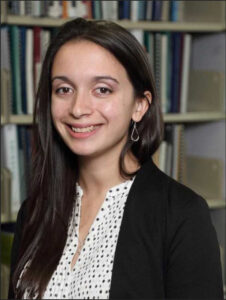Lymphoma Canada is pleased to announce the 2021 Research Grant recipients; two researchers dedicated to improving health outcomes and advancing access to therapies for lymphoproliferative malignancies in Canada.
We Congratulate the 2021 Research Grant Recipients:

Dr. Krysta Coyle, Ph.D
Simon Fraser University, British Columbia
Lymphoma Canada is pleased to announce 2021 research grant recipient, Dr. Krysta Coyle, a post-doctoral fellow at Simon Fraser University in British Columbia. Dr. Coyle has a particular interest in the field of cancer genomics and specifically lymphoma biology and genetics. Her work focuses on identifying new clinical assays and therapeutic approaches for treating patients with aggressive lymphomas.
Her research project focuses on characterizing alternative splicing in Mantle Cell Lymphoma. Mantle cell lymphoma is diagnosed in approximately 500 Canadians each year and is largely considered to be incurable.
To improve the survival of these patients, Dr. Coyle’s work will investigate the effects of certain mutations that lead to worse outcomes, and test a new treatment in laboratory to correct these mutational effects. Evaluating this treatment in the laboratory will provide important information for future clinical trials to benefit patients with cancer. This research will ultimately improve outcomes for patients with MCL.
Congratulations Dr. Krysta Coyle!

Dr. Versha Banerji, MD
University of Manitoba, Manitoba
Lymphoma Canada is pleased to announce 2021 research grant recipient, Dr. Versha Banerji, a clinician scientist at the University of Manitoba. Dr. Banerji has a particular interest in developing new metabolic therapies to target and treat hematologic malignancies, and is motivated to bring these new therapies to the clinic to treat her patients. Her work and interest in particular focuses on Chronic Lymphocytic Leukemia (CLL).
Chronic lymphocytic leukemia (CLL) is the most common leukemia in Canada and while treatable, remains incurable. CLL is considered a subtype of lymphoma as it behaves and is treated similarly to other indolent lymphomas.
The success of novel treatments in CLL has greatly improved the options for all CLL patients and more so for elderly patients or patients with high-risk disease based on molecular testing. These new treatments are currently dosed every day for the rest of one’s life as long as the treatment works. This study evaluates the effects of this change in treatment paradigm and the introduction of molecular testing to ensure continued access and ease of incorporation for new CLL treatments.
Congratulations Dr. Versha Banerji!






